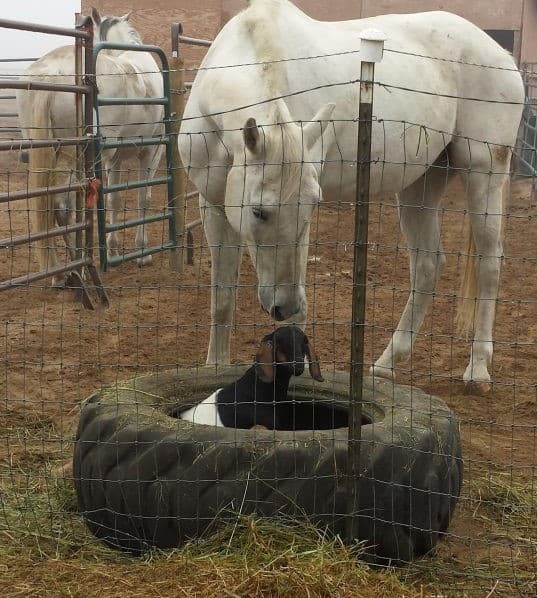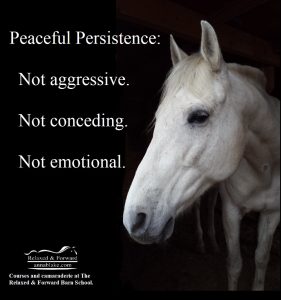
My first ex-husband used to tease me about my frantic love of shortcuts. I was always up early, on the run, impatient as a kindergarten class five minutes before recess. My multitasking skills were nothing short of genius, I thought. I did the work of a dozen in half the time. When my plans derailed, as they often did, he had a name for my shortcuts: alternate routes. We joke I should wear a big flashing yellow warning sign.
On one of my shortcuts, I was irretrievably lost, my car broke down with no pay phone in sight, and swearing was no help at all. There was simply no way to be where I needed to be, and I had to admit I was powerless over my addiction to moving at light speed. I had to give in. Not to mention, I had too much time to think while I was walking for help, but the most wonderful thing happened. A question came to me, “What if this isn’t wrong?” I noticed how good it felt to just let go. Once the anxiety was gone, I found the airy freedom that comes with acceptance.
I’m not claiming I invented the concept, just that this is what it took me to finally notice. Horse people are notorious for not giving in to anything. Bull-headed is our middle name. We drop into 4-wheel granny gear and move like a tank. It could seem prideful, I guess, but it’s just who we all are. We make our lives by hand out of found objects. Praying with mud in our hair, as tough as mules, never quitting till the last breath. So no, the thought that giving in might have a high side never crossed my mind.
Looking for the high side is a survival skill, nothing less. We resist change, but what if we have to give up something to make room for something better? The idea took root. If change was inevitable, I would not continue being its victim. I would find the dull, rusty silver lining.
Nube (nu-bay) and I had mostly recovered from his collapse while cantering. I’d talked to vets again, done more tests, and taken on research on my own. One sunset evening, I climbed on Nube’s back for a stroll. He seemed glad to be back in the arena, but a few minutes later, another collapse. Just to his knees this time, but that same instant fall. He had no more warning than I did. Nube landed without tipping to the side and I could step off. I hope I never see that look on a horse’s face again. Furrowed brows, eyes sunken, his ears lateral in confusion. I might have had the same face.
His body was changing. He had always been a juicy meatball of a horse, but now he was lanky. His muscles seemed to shrink; he was turning into a Thoroughbred body type. Still handsome, but I feared that the miracle prescription Chinese herbs had stopped working and none of the new tests had any answers to the collapses. He used calming signals to communicate that the ulcers had resurfaced for the umpteenth time, and the hidden problem persisted.
Nube was clingy, he was probably in pain. Eventually, the traveling specialist vet returned to Colorado, and we drove to see him. As Nube stood for the exam, I asked the vet questions he didn’t have answers for. He was choosing his words carefully, in that terrifying way that you know bad news is coming. He quietly admitted that he was out of ideas and so I groveled, needing more, I kept pushing, but not so much that he’d shut down. I felt pathetic and disgusting. I didn’t cry. That would make it worse for the vet. So, I begged.
Then the vet said he had a horse with similar symptoms. How did I not know this? He kept his eyes low, packing up instruments. I couldn’t tell his sadness from mine. A well-bred Quarter Horse, he said, and if he wanted to ride the horse, he needed to keep him on full-time Gastrogard.
Forever, I asked. He nodded.
We finished, Nube obligingly stepped onto the trailer, and we headed for home. We’d had bad luck with Gastrogard in three separate months of use. Nube had strong rebound effects and understanding how omeprazole works, I couldn’t imagine it would be good for long-term use. At a thousand dollars a month, I’d need a second job. I could do that, but it still would not touch whatever was going on under the ulcers.
And now my last best help had cut us loose. Even though I could barely afford his rates, I didn’t know if I could afford to stop. But if I didn’t stop soon, I’d put the farm and all the rest of the herd at risk. Was my responsibility to one animal bigger than the whole herd? Would having all the money in the world make him well?
Nube’s heart was the sun, but the rest of him was a ball of twine. It just wasn’t natural for a horse to struggle to this extreme. Could it be an internal defect he was born with? Was he undiagnosable? And saddest thought, what if this isn’t wrong?
I searched for the high side of this heartbreaking moment. Loss is such a large part of life that I knew the impasse. Sometimes the only resolution to a fight that has gone on too long with no end in sight is to just stop fighting. To let peace rise from the debris of failed hope.
There’s a thing I do when I see roadkill or animals not within my puny sphere of control. The times that I can’t help. I had to let Nube be God’s horse. I couldn’t let him suffer, only a lab rat for things we don’t know, and I couldn’t let my heart hurt all the time. So, I had to let go. Nube was retired at seven years old. Not that retiring was a bad thing. He still had friends and sunny days. There was quality hay and fresh water and donkeys to wrestle.
The first few months were hard, his symptoms didn’t lessen. Then I tried the worst thing. I made my mind dead to him, meaning I let all my thoughts leave. I became blank around him. Not filled with ideas or regret, not happy or sad. I let go of my emotion, and his body became softer. In a couple of years, the herd elder, my Grandfather Horse, passed. Nube quietly stepped into that role of wisdom, long before his years. What if this isn’t wrong?
Nube got over us quicker than I did. I buried myself in my work. Learning is solace, I studied and continued to write about Calming Signals and Affirmative Training. I received more and more invitations to give clinics in far-off places. If I had been riding Nube, I don’t know if I would have been willing to be gone so much. Along the way, I met many horses who told us they had issues that seemed to be undiagnosable. More riders searched for answers when there were none to be found. It was territory I understood.
In efforts to help my horse, I had massed a wealth of unwanted knowledge. Much of it was health-related, and as good trainers do, I had become a decent amateur vet. Recognizing our limited control, I taught gentler training methods instead of relying on fear-based ones. Better listening skills, learning to recognize subtle messages. My sadness never fully left me, but I’d become helpful to others. What if this isn’t wrong?

[Twelfth in a series called Nube’s Story.]
…
Relaxed and Forward Training by Anna Blake is no longer on Facebook because of repeated hacking. If you appreciate my writing, please share, subscribe to this blog, or join us at The Barn School.
 The Barn School, is a social and educational site, along with member sharing and our infamous Happy Hour. Anna teaches courses like Calming Signals and Affirmative Training. Everyone’s welcome.
The Barn School, is a social and educational site, along with member sharing and our infamous Happy Hour. Anna teaches courses like Calming Signals and Affirmative Training. Everyone’s welcome.
Want more? Become a sustaining member, a “Barnie.” Subscribe to our online training group with affirmative demonstration videos, audio blogs, daily quotes, free participation in “group lessons”, and live chats with Anna. Become part of the most supportive group of like-minded horsepeople anywhere.
Visit annablake.com to find archived blogs, purchase signed books, schedule a live consultation, subscribe for email delivery of this blog, or ask a question about the art and science of working with horses.
“What if this isn’t Wrong”?
Indeed….. Words and the message I so need to embrace in so many, so many areas of my life just now.
Very emotionally powerful the concept of “What if this isn’t Wrong”.
Hugs and gratitude to you dear one.
Thanks, Kim. Learning to not get hit by curve balls, yourself, I know.
Yep.
Thanks, Katharine.
My two year old colt, Cat Stevens, has had problems with ulcers since he was a baby – diagnosed by your astute eye and extensive body of research. I failed him horribly when I took him on a five hour trailer ride to North Carolina for a two day clinic with you. His anxiety was so acute that we couldn’t do anything with him, and then he came home with the worst ulcers he’d ever had. It took 2 to 3 months, and one hard kick to my thigh telling me he needed more time, for him to get back to being the inquisitive, playful, naughty, in-your-face busybody he has grown to become. I worry that I will never be able to take him away from home, that any idea of showing off his incredible collected gaits in dressage schooling shows are likely to be unrealized dreams. But then I comfort myself that he is happy just being Cat, living in his happy herd and making his humans’ lives more difficult, but also more fun in a challenging way. It’s enough. It has to be.
Hi Rebecca. Cat is all that, he’s amazing. And not nearly as extreme, hard as it is to believe, as Nube was. And it was a big trip for a young horse. I think you have negotiation room. With short, easy trips they can build up to doing the bigger drives and the beach visits. (I need to write a blog about how trailering gets easier.) It might feel like a mistake, but how so we know if we don’t try. So now we build back, and strengthening the foundation always a good thing.
Thanks, as always, for your support!
No worries. He is that good.
Love it and love to Nube. My two horses that I put down last year were both in pain. Not happy. One had EPM that was getting worse and the other was a question. mark, but we knew he wasn’t happy. Those choices are hard to make and are heart breaking. I wish we had a crystal ball. If and when he dies, or you put him down, can you get an autopsy done on him in the research to help others??
Don’t know what it would cost but maybe that specialist vet could help. He would learn also.
More of those necropsies care being done, it’s very expensive. But we are learning from them, you’re right. Condolences, Virgina. And thanks for doing the right thing.
When I got bucked off and was in the ICU with 9 broken bones the amazing nurse had to take me by the shoulders and give me a stern talking about taking the pain meds. She said she usually has these ‘problems’ with equestrian patients. But the second part of your story, today, hit a hard nerve. My very expensive, my very sensitive and anxious Oldenburg mare had undiagnosed problems for most of her adult life. She split her back legs apart when she was young. She finally dislocated her hip OR broke her femur while in her stall/run one night. But, as we horse-women do, I had to exhaust every avenue from 3rd opinions to communicators before I could let her go. Meanwhile I slept with her in the barn and took care of her every need. I was amazed at the relief I felt when she left me. Was it coming from her or from me? I don’t know but it gave me the release from guilt that I needed.
I know that relief, I think it’s everywhere. The horse, me, and I think the rest of the herd feels their pain, and also relief that the suffering is over. Some were never meant to live, some were never right. Thanks, Barbara.
Well, that made me cry – and led me to wonder if we all have a similar story about our horses. I thought it was just me. Best vets in the country couldn’t figure out what was wrong with my favorite mare. There was never an answer.
What if that wasn’t wrong? Thanks Stacey.
What if this isn’t wrong?
So much in so few words. 💕
A conversation that your horses really approve of. Thanks, Toni
It’s taken me a while to think about this one. I am going to say probably the strange thing, but I will say it none the less: I contemplate whether his journey of love (yours for him, yes I am going to call it love), and then suffering (yours and his), didn’t make way and ready your path, which is to help others of his kind. That is all I am going to say, except that in my belief, he is still among the herd and knows what you are doing and perhaps sending you calming signals of his own. x
For all I know about training and riding, he was the horse who impacted me the most. Thanks, Kathy.
Sorry about the FaceBook scourge.
I love reading these and am happy I can still read them via email.
Thank you so much!!!
Thanks for subscribing, Kathleen
I love reading these tales about Nube- maybe because I had a different but similar mystery with Zen Bear as you know. Interesting that you say his muscles changed from juicy to something different. I wonder if he had one of the poorly understood but prevalent muscle diseases ? I guess it does not matter now, does it ? But surrendering, giving in to what is does still matter and is a critical lesson for us all.
Muscles change for many reasons, but who knows. I always thought it was stifle or SI, but just a guess. It was probably a laundry list of undiagnosables. Thanks Sarah.
“I made my mind dead to him, meaning I let all my thoughts leave.” In other words, what else was there left to do, Anna, but begin to live in the moment with Nube. I think this is what he must have appreciated most.
Maybe horses are always in the moment and it’s us that struggle with it. The connection we had, since he was a new foal, was always that. Maybe too much so. I didn’t say it well. I stopped communicating with him. You know how horses can read our mind/body? Hear our cues? I just stopped. It was the way I could think of to let him be free. Nube made me wonder if we could connect too much with horses.
Yes, this. Thank you.
A beautiful piece.
Anna, I remain so grateful that you helped me let go of expectation for my troubled gelding at a 2018 clinic in Victoria. I needed someone to say it plain, and you did: ‘Put him in the paddock, let him be a horse and if there are consequences, deal’. He’s now 20, a soft and gentle soul enjoying unridden life with his mates, and interacting willingly with me on his own terms. We’ll never know what his structural ailment is, it no longer matters, and my ‘filthy emotions’ about a specific outcome no longer impact either of us. As you suggest, I just stopped. Definitely wasn’t wrong!
Thank you for all the wisdom you share.
Thank you so much for saying this, Shaunna. I know I am blunt and sometimes in service to a horse, I might hurt feelings, and I’m sorry for that. Thank you for putting him first. Thank you for giving him the best life and allowing him to show his gratitude in his own way. As bittersweet as it is…
Thank YOU for always putting a horse first, and there’s no need to be sorry for doing what must be done. Humans are capable of adapting their dreams and desires, and sometimes horses need them to do so.
So well put.
Hi
Nice to chat again. Check the genetics of NUBE. There are heritable diseases of American Quarter Horses that can cause this syndrome. I am a member of AQHA and we take hair and genetically test for heritable diseases in all our breeding horses. There are 6 known heritable diseases in Quarter horses. All our breeding horses are ALL 6 panel negative.
Nube wasn’t a QH, but an Andalusian. That said, many in his bloodline had challenges. It’s interesting the issues that are heridatary… not always what you’d expect. I’m glad we have evolved to testing these issues, in horses and dogs. Thanks, Cheryl.
I needed this reminder today
Thanks, Shelley